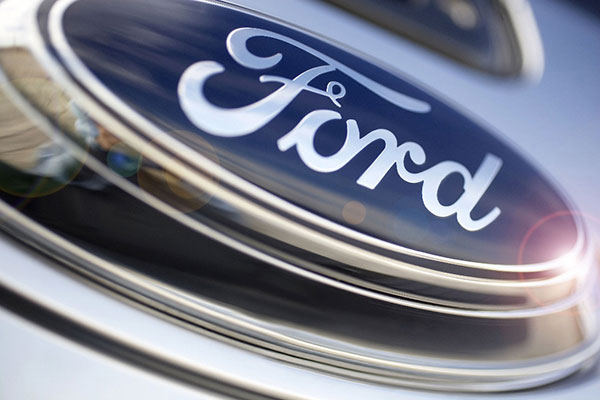
Ford plans self-driving car for ride share fleet
NEW YORK, August 17, 2016
Ford Motor Co plans to offer a fully automated driverless vehicle to commercial ride sharing fleets such as Uber in 2021, the automaker announced Tuesday.
Ford chief technical officer Raj Nair in an interview said the company likely will not offer a similar driverless car, without steering wheel or pedals, to consumers until 2025 or later.
Nair also said Ford, unlike many of its competitors, has no plans to offer highly automated, but incremental systems that would still require drivers to take the wheel. That "all in" approach to full automation has been the path favored by Alphabet Inc's Google, which is deep into the development of autonomous vehicles.
To help speed development of self-driving cars, Ford Chief Executive Mark Fields on Tuesday said the company is hiking investments in Silicon Valley technology firms and more than doubling the size of its Palo Alto, California, research team.
He declined to say whether Ford plans to partner with Uber or Lyft in the ride sharing venture, saying "all options are open and on the table."
Uber, the largest U.S. ride services company, has forged partnerships with other automakers, including Toyota Motor Corp.
Lyft is privately held. Among its investors are General Motors Co; Didi Chuxing, China's largest ride services firm and a partner of Uber; and Fontinalis Partners, a Detroit-based venture capital firm co-owned by Ford Motor executive chairman Bill Ford.
Ford and Baidu Inc, China's largest internet company, said Tuesday they have jointly invested $150 million in Velodyne, which makes laser-based sensors that are a major building block in self-driving cars.
Earlier this year, Ford invested in another Silicon Valley firm, Civil Maps, which is developing advanced mapping for self-driving vehicles.
Ford did not disclose the value of its technology investments, but they appear to be dwarfed by those at GM, which earlier this year spent $500 million to acquire a 9 percent stake in Lyft and acquired Cruise Automation, a Silicon Valley self-driving software startup, for more than $1 billion.
GM and Lyft are testing self-driving software in specially equipped versions of the new Chevrolet Bolt electric car.
Ford said it expects to deploy 30 self-driving Fusion Hybrid prototypes this year and 90 next year in California, Arizona and Michigan.
Nair said Ford is "tripling our investment" in various driver assistance technologies, including automatic parking and traffic jam assist.
But as the levels of automation get higher, Nair said, "it becomes increasingly difficult to ensure that you have the appropriate level of driver engagement and situation awareness, to hand over (vehicle control) in a safe and reliable fashion."
He said Ford, with its investments and its acquisition of SAIPS, an Israeli computer vision and machine learning startup, now has the building blocks in place to develop a fully automated driverless vehicle.
"It's an enhancement of the architecture we've set up," he said. "There's still a lot of engineering development we're going to be working on flat out between now and 2021." – Reuters







